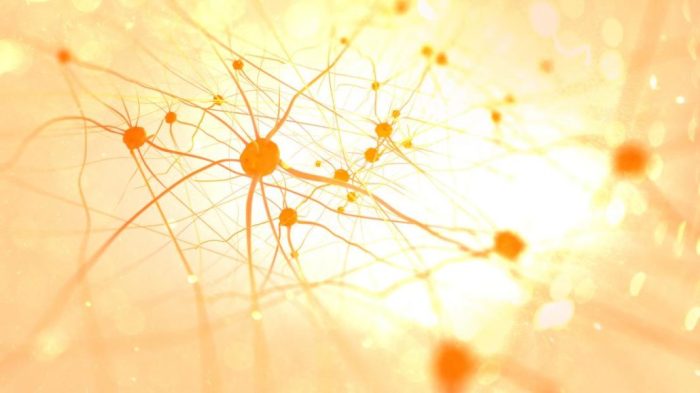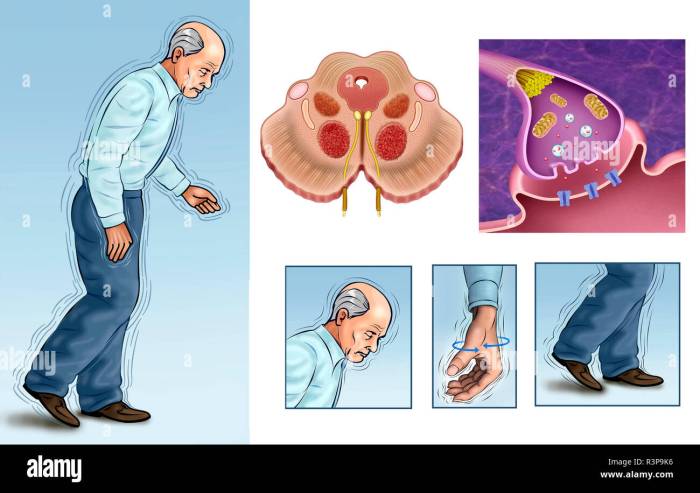Alzheimer’s disease involves a deterioration of neurons that produce neurotransmitters, leading to progressive cognitive decline and behavioral changes. This insidious condition affects millions worldwide, posing significant challenges for individuals, families, and society.
As we delve into the complexities of Alzheimer’s disease, we will explore its cellular and molecular mechanisms, clinical manifestations, treatment options, and the profound impact it has on individuals and society. Understanding this devastating disease is crucial for developing effective interventions and providing compassionate care.
Definition and Overview of Alzheimer’s Disease

Alzheimer’s disease (AD) is a progressive neurodegenerative disorder that affects memory, thinking, and behavior. It is the most common form of dementia, accounting for 60-80% of cases.
AD is characterized by the accumulation of amyloid plaques and tau tangles in the brain. These abnormal protein deposits damage neurons and disrupt communication between brain cells, leading to cognitive decline and behavioral changes.
Prevalence and Risk Factors, Alzheimer’s disease involves a deterioration of neurons that produce
- AD is the most common form of dementia, affecting an estimated 50 million people worldwide.
- The prevalence of AD increases with age, with the majority of cases occurring in individuals over 65 years old.
- Risk factors for AD include:
- Age
- Family history of AD
- Certain genetic mutations (e.g., APOE4 allele)
- Head injury
- Cardiovascular disease
- Diabetes
Questions and Answers: Alzheimer’s Disease Involves A Deterioration Of Neurons That Produce
What are the early signs of Alzheimer’s disease?
Early signs may include memory loss, difficulty with language, disorientation, and changes in mood or behavior.
Is Alzheimer’s disease curable?
Currently, there is no cure for Alzheimer’s disease, but treatments can help manage symptoms and slow disease progression.
What are the risk factors for Alzheimer’s disease?
Age, family history, certain genetic factors, and lifestyle choices (such as smoking and obesity) can increase the risk of developing Alzheimer’s.



